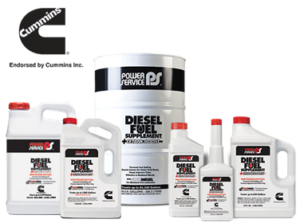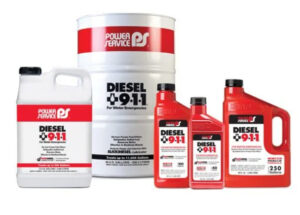Have you ever experienced trouble starting your diesel engine during especially cold days? This could be due to your diesel fuel gelling up. Allow us to delve into the world of fuel additives to empower you with knowledge that can make a significant difference in your engine’s performance, especially during chilly winter months. As temperatures drop, the consistency of diesel fuel can change from its normal thin fluid into a thick gear oil, clogging lines and filters. This is called diesel fuel gelling. In this post, we’ll explore the ins and outs of diesel fuel additives, uncovering how they work to prevent fuel gelling and ensure your engine runs smoothly, even in the harshest winter conditions. Join us as we navigate through the science behind anti-gel additives and equip you with the information needed to keep your vehicle running reliably all year round.
Facts about Diesel Gelling
Diesel fuel gelling is a process that happens when the paraffin wax in the diesel hardens and forms a gel-like material when temperatures drop below freezing. For diesel-powered engines, this procedure may have several unfavorable effects, especially in colder regions. First of all, gelled diesel fuel can obstruct fuel flow via filters and fuel lines, which might halt the engine.
Furthermore, the gel has the potential to block fuel injectors, which could result in damage to your injectors, especially in today’s high pressure common rail systems. Additionally, paraffin wax crystallization can lead to filter blockage, which impedes fuel filtering and may even harm the fuel system. Gel in the diesel can also put stress on the engine as a whole, making starting more difficult and decreasing fuel economy. Understanding the possible negative effects of diesel gelling emphasizes how crucial it is to take preventative steps, such using anti-gel additives, to lessen these problems and guarantee smooth vehicle running, particularly in cold weather.
Prevention with Diesel Fuel Supplement
Diesel fuel additives can improve your engine’s lifetime and performance in a number of ways. Typically, these supplements include chemicals made to improve the characteristics of diesel fuel, tackling problems including fuel gelling, inadequate lubrication, and incomplete combustion. For example, anti-gel additives alter paraffin wax’s crystalline structure in cold climates to stop gelling and guarantee smooth fuel flow. By improving the lubrication of fuel system components, lubricity additives help to lower wear and friction. Cetane boosters also increase fuel efficiency and power output by increasing combustion efficiency. Detergents that aid in maintaining and cleaning fuel injectors may also be present in diesel fuel additives, which enhances engine performance overall. By including these additives, you may improve combustion, optimize the fuel’s qualities, and support the general health of your diesel engine—all of which help it run more dependably and efficiently.
One of the primary benefits of anti-gel additives in particular is the preservation of fuel flow, ensuring that the diesel remains in a liquid state even in frigid conditions. This helps prevent engine stalling, maintaining a consistent and uninterrupted fuel supply to the combustion chamber. Additionally, anti-gel additives contribute to the prevention of filter plugging, reducing the risk of clogs in fuel filters, and maintaining optimal filtration efficiency.
A good rule of thumb is to start using anti-gel additives whenever the temperature drops below 30F. This becomes more important as temperatures drop even further. It is also important to add anti-gel if you are fueling up in a warmer region and traveling to a colder region, as the warmer region fuel may not be adequately blended to prevent issues as the temperatures drop.
Steps to do Once fuel is already gelled
If you find gelled diesel fuel in your engine, you need to fix the problem quickly and carefully. The first step would be to add an emergency additive such as power service 9-1-1, that helps de-gel the fuel and restore the fuel supply to your engine. It’s best to add this product directly to the tank, as well as the fuel filter. Follow the directions listed on the emergency additive.
If the emergency additives are unsuccessful in helping start the engine, or if anti-gel additives are not available, it is imperative that the engine be moved to a warmer location, such a heated garage. If relocation is not possible right away, the thawing process can be accelerated by placing portable heaters or electric blankets around the fuel system. Refrain from trying to start the engine until the fuel system has been allowed to heat up, as you may do more harm. It’s also a good idea to speak with a qualified mechanic to see whether the fuel system has sustained any damage and to make sure that the right precautions are taken to stop gelling from happening again. Think about adding a premium anti-gel additive to the fuel tank and implementing other safety precautions, including utilizing winter-grade diesel fuel and doing routine maintenance on the fuel system parts, to avoid similar mishaps in the future.
Crosspoint Power and Refrigeration Recommendations
Here at Crosspoint Power & Refrigeration, we offer two different types of anti-gel fuel additives from Power Service.
The first option is “Diesel Fuel Supplement+ Cetane Boost product by Power Service. This product is a winterizer/antigel that is used in the cold winter months to prevent fuel gelling and keep fuel-filters from plugging with ice and wax. The intended use of this product is to be used when temperatures drop below 30F as a preventative measure.

The second option is Diesel 911, another product by Power Service. Diesel 911 is a winter emergency use product which can be used in emergency situations to restore the flow of diesel fuel to an engine. Some of the benefits of this product include re-liquefying gelled fuel, de-icing frozen fuel-filters, and removing water. This product can be used in all diesel engines.

If you are interested in keeping your engine running smoothly for this upcoming winter or want to be prepared for an emergency situation, you can contact us at (317) 240-1967 or visit our website.


